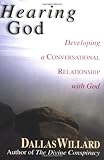I’ll bet some of you thought this blog was dead. I thought so too, but maybe it won’t be much longer. This summer has seemed like a pivotal time for me. After four years of seminary and one year in the Wellstreams program, I felt saturated and tired. Tired from the effort of all that practice and study while trying to have a normal family life and work a full time job, and saturated with so much good information and experience picked up from five years study of, and practice in, spiritual formation. The crisis that helped bring me in to that phase of my life seems more in the background these days. Not that I’ve conquered it, but I think that I have begun to see ways of accepting it, making sense of it, and using its influence to push me in the direction of greater spiritual growth and a stronger, more well grounded faith.
This spring, Toward the end of Phase 1 of Wellstreams, I started a discernment process that led to my decision to discontinue the program. Phase 2 would have kept me in the saturation process for another two years. There were several reasons, circumstances and events that led to the decision not to continue. It wasn’t just the feeling that I couldn’t go on this way for two more years. But after soaking up so much for so long, it seemed like time to start an outflow, both for the benefit of others and to make room in me for fresh “living water” (John 4:10-14) and turn this sponge into a fountain. I still think training in spiritual direction is in my future, but perhaps in a less intensive venue. For now I need to find more of my own direction to provide a context from which to help others. After so long, I’ve felt spiritually disconnected in a way, rootless. It’s time to put into practice more deeply what I’ve learned in a way that is more driven by God’s intentions for my life than by the specific requirements of a class or training program (I’m reminded of Psalm 1:2-3 here). It’s time to be open to the the possibilities that are hard to notice or consider when one’s life is so full of other things. I enjoyed the Wellstreams classes and will miss my classmates who will go on without me. I think I made some good friends there and I hope our paths will cross again. But rarely has a decision like this seemed so clear to me as to seem like God is really up to something in it. Pray for me and for Mary Beth too, please.
One of the things I’ve enjoyed about having more time off this summer is getting to to more discretionary reading instead of assigned reading (and writing). I’ve been using Shelfari for a while to keep track of my reading, but I’ve recently copied it to Goodreads to try that out. So many good books … so little time to read them all. I hope to be doing more discretionary writing too. Some of it should find its way to this space.



 Sandy is a new member of our family, adopted by us about seven weeks ago. I wasn’t sure I was ready for another dog so soon after Sheila but Sandy needed a home and we had a big vacancy. She’s an Australian/Border Terrier mix, a little shy and unfriendly to strangers and other female dogs, but she’s very affectionate and playful when she gets to know you. She’s learned pretty well to get along with Jessica and Lucas’ boxer, Bella, on their visits. She also did well at a big party we had this weekend to celebrate a “milestone” birthday for Mary Beth and my completion of seminary. It was a great backyard party where we enjoyed seeing many family members and friends.
Sandy is a new member of our family, adopted by us about seven weeks ago. I wasn’t sure I was ready for another dog so soon after Sheila but Sandy needed a home and we had a big vacancy. She’s an Australian/Border Terrier mix, a little shy and unfriendly to strangers and other female dogs, but she’s very affectionate and playful when she gets to know you. She’s learned pretty well to get along with Jessica and Lucas’ boxer, Bella, on their visits. She also did well at a big party we had this weekend to celebrate a “milestone” birthday for Mary Beth and my completion of seminary. It was a great backyard party where we enjoyed seeing many family members and friends.
 day is a very sad day in our household. We lost a special friend and family member. Our 15 year old Australian Terrier, Sheila (that is my son holding her in the picture), took her last trip to the vet today. She had been getting us ready for this for over a year now. She had diabetes for the last five years and her health has steadily deteriorated since then. Last year before Easter she became very sick and I was sure we’d lose her then but she recovered and gave us one more year. Though her eyesight and hearing were almost gone and she didn’t have much energy, she still liked to be held and have her back scratched. She no longer greeted us when we’d come home from work, but she seemed to know we were there. She couldn’t climb stairs but seemed content enough to eat and sleep and wander around the house or back yard bumping into things. She was always able to find her food and water and her bed when she needed them. There was nothing wrong with her nose.
day is a very sad day in our household. We lost a special friend and family member. Our 15 year old Australian Terrier, Sheila (that is my son holding her in the picture), took her last trip to the vet today. She had been getting us ready for this for over a year now. She had diabetes for the last five years and her health has steadily deteriorated since then. Last year before Easter she became very sick and I was sure we’d lose her then but she recovered and gave us one more year. Though her eyesight and hearing were almost gone and she didn’t have much energy, she still liked to be held and have her back scratched. She no longer greeted us when we’d come home from work, but she seemed to know we were there. She couldn’t climb stairs but seemed content enough to eat and sleep and wander around the house or back yard bumping into things. She was always able to find her food and water and her bed when she needed them. There was nothing wrong with her nose.